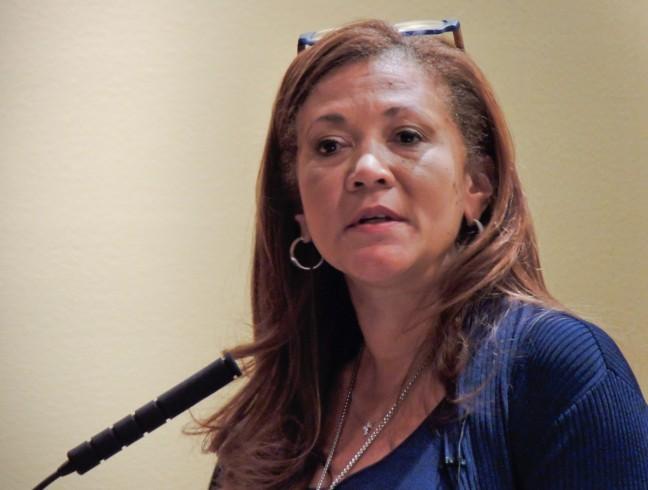National Public Radio correspondent Michele Norris’ advice to young people can be captured in a six-word sentence: “Always write your future in pencil.”
Norris, an award winning journalist, spoke on campus as part of the Wisconsin Union Directorate Distinguished Lecture Series Monday night, emphasizing the idea that life has a way of rewriting itself.
Once a University of Wisconsin electrical engineering undergraduate, Norris said she found a passion for journalism as a transfer student at the University of Minnesota.
The first African-American host at NPR, Norris said when she began working in journalism she was concerned about being the person in the workroom that always talks about race.
“I never wanted to take on that mantle, because it is sort of given to you when you are a person of color … I wanted to cover all the fields … I didn’t want to be the journalist that always talked about race,” Norris said.
Now, Norris said race discussions are the largest part of her portfolio, a change she made willingly.
“Race is something we have a hard time talking about in this country,” Norris said. “I entered through this door because I was trying to make this conversation easier.”
‘Playing the race card’ is one of the phrases Norris said she hates the most, because it is imprecise and used to shut down conversation. But to ease into conversations about race, Norris decided to literally play the race card.
Norris’s Race Card Project asks people to reduce their thoughts and observations about race to one six-word sentence.
She began the project by creating 200 postcards and handing them out to people in cities she visited. Norris said she was unsure whether she would get a response, but 30 percent of the original 200 were mailed back to her.
Once the project got started it did not stop, Norris said. Postcards starting pouring in from all over the country and moved into the social media sphere, she said. Now, Norris said she even receives postcards from abroad.
It is all people expressing their thoughts on race, a very difficult topic, in six words, Norris said.
“The Race Card Project is meant to open us all up to different ways of thinking, not to change anyone’s mind, necessarily, but in some ways it’s a mirror and a window,” Norris said. “You will see things maybe you understand and recognize but you will also learn a little about life as lived by someone else.”
The project also allows people to understand smaller moments in life and not just the big things in history books, she said.
America is changing in significant ways and it can be seen everywhere, Norris said. Young people will inherit a world that is so much different than the one she grew up in, she added.
There are shifting demographics in the country and the nation is transforming into a majority-minority nation, Norris said, which requires people to think about things they may not want to.
The race cards are most interesting when people talk about themselves, because that is when you really understand people because they are digging deep and are much more introspective, Norris said.
“[The Race Card Project] has been an education unlike any other I’ve received in the classroom or the newsroom,” Norris said. “I’ve learned fundamental things about America that are only possible because people have opened up and shared their stories with me and allowed me to share them with others.”
University of Wisconsin teamed up with Norris’ The Race Card Project to encourage students to join in on the race conversation.














